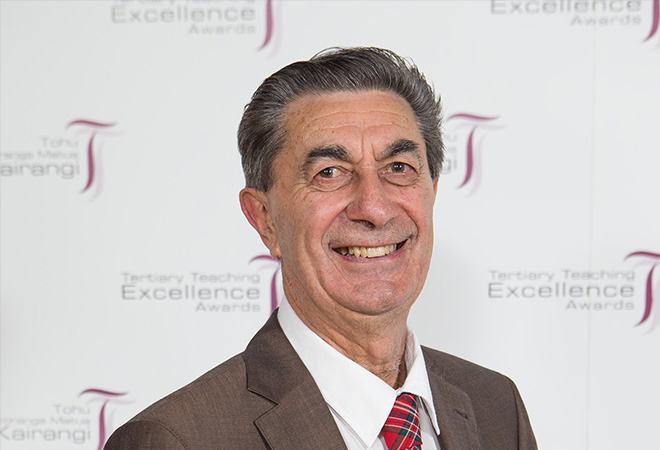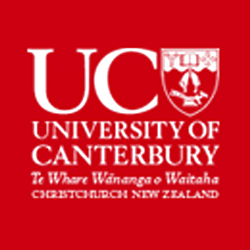
Huakina Mai: Doorways Toward Culturally Responsive Education
Status
Completed: 10 January 2013
Project Details
A project, undertaken by University of Canterbury, to develop a good practice guide showing how one summer course illuminates the relationships that exist between diversity, equity, engagement and educational success, by drawing on culturally responsive approaches in lectures, professional conversations, workshops and assignments.
Aims:
The main aims of the project were to:
- deliver a summer school course designed primarily for practising tertiary teachers
- provide a course relevant for all educators willing to engage in responsive ways with cultural diversity, while also being aware of the impact of any personal biases that they might have.
Methodology:
The project used a qualitative methodology to report on the positive outcomes of a 6-week summer school course for educators engaging in responsive ways with cultural diversity.
Team

Angus Macfarlane
University of CanterburyStatus
Funding
$2,600.00 (excl GST)
Key Findings
The key findings from the project included:
- The summer school course, ‘Culturally inclusive pedagogies: Motivating diverse learners’, has demonstrated that many educational professionals have taken up this challenge and are now making a more positive difference for Māori learners after having undertaken the 6-week tertiary study experience.
- Quintessential to the summer school programme is the message that when educators – regardless of their cultural backgrounds – connect to the culture of the students in their classes, building and sustaining relationships are enhanced and the likelihood of better performance by the students increases. The knowledge gained here leads tertiary teachers to an awareness of the potential impact a negative cultural bias is capable of having on learners, thereby leaving the course knowing better how to ameliorate that.
- In the face of the current outcry about Māori students’ educational underachievement and discord in schools, research that highlights effective and responsive practice offers an alternative. Such research reinforces the argument that educators need to approach the practice of teaching as a moral craft and a cultural obligation – an approach that effectively brings into play the heart, the head, and the hand. The heart is about having a philosophy and therefore incorporates beliefs, values, and vision. The head involves personal or cognitive theory. The hand is about practices – the skills, strategies, and decisions that are concrete and emphatic. Each without the other two results in vulnerability; each with the other two signals authority. This course provides an opportunity for participants to explore the ‘heart’, the head, and the ‘hand’ in a culturally appropriate, bias-free setting.
- Within the summer school course, four principles may be used to measure progress towards culturally responsive pedagogy: success (whakanuia), connectedness (hononga), ambiance (pūmanawatanga), and scholarship (mātauranga). One important phenomenon within the summer school course is the opportunity for participants to widen their knowledge and lift their confidence through engaging in cultural zones that are quite different from their own. Throughout the course the tertiary students encounter (in class) the languages and customs of the cultures represented by their tertiary student colleagues, and (in assignments) the learning and teaching content.
Key Recommendations
The key recommendations from the project included:
Learning strategies and teaching methods | If we are to maximise student success in tertiary education it would appear that we must strive to develop a unifying theory of teaching and learning that addresses the aspects of rigour and relevance. Throughout the years this summer school has been in existence, feedback – either sought or offered – has consistently been favourable about the choice of content, as well as the learning strategies and teaching methods that reflect the subject matter and the learners’ needs. A key competency for these learners is to reach a sense of place within the general scheme of things; it is about belonging. When negative cultural bias is evident belonging may not ensue.
Culturally responsive learning experiences | Over the years, this course has modelled an inclusive learning journey, provided relevant and authentic culturally responsive learning experiences, and has been epitomised by way of the Māori concept of whaiwāhitanga (participation in and across cultural contexts). This in turn has fostered students’ confidence in professional and scholarly performance. Over the years, the summer school participants have commented positively, through course evaluations, on their encounters with a range of modules, experiences, challenges, and also on the camaraderie engendered along the way.
Valuing diversity | Finally, the four principles that opened the doorway towards culturally responsive pedagogy –whakanuia, hononga, pūmanawatanga, and mātauranga – have been instrumental in sustaining a learning environment that values diversity. These principles are not the domain of this summer school alone. It is clear that many tertiary learning environments display a breadth of information about diversity that is able to be shared; however, we must continue to reflect, refine, and ultimately rejoice in the positive outcomes that result from inclusive and successful educational experiences.
A good practice publication prepared by Professor Angus Macfarlane.
(PDF, 195 KB, 8-pages).
- 10 January 2013